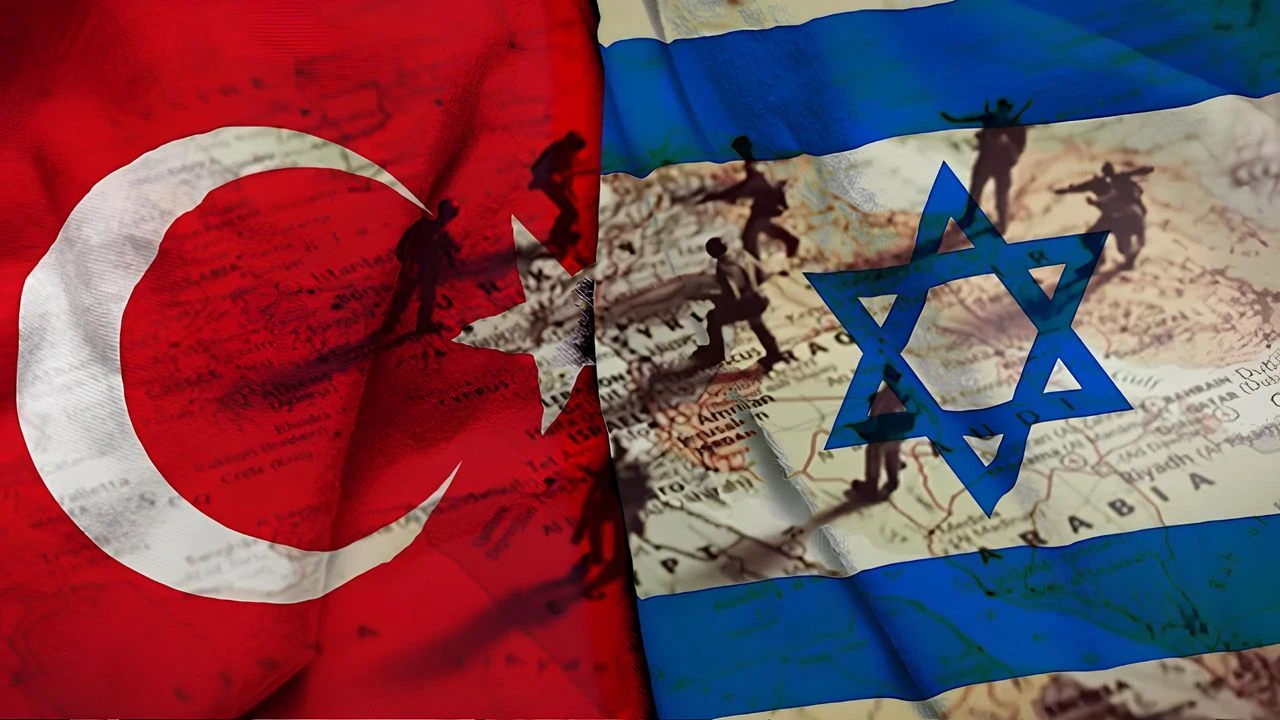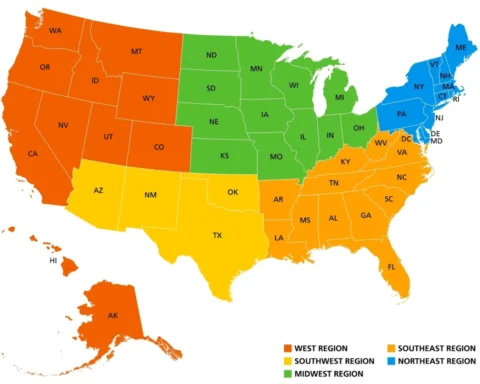Israel’s unprecedented attack on Doha, with tacit US support, has raised fears that Turkey could be next in Tel Aviv’s crosshairs.
Israel’s attempted assassination of the Hamas political leadership in Doha, Qatar, has shaken the Gulf region, which hitherto believed that Qatar’s status as a US ally and official mediator in the Gaza war shielded it from such an attack.
Considering this willingness to attack Hamas in Qatar, Israel could conceivably follow that unprecedented strike with another even more consequential one against Hamas members in Turkey, another US ally and NATO member.
Already, analysts haven’t ruled out that possibility, pointing to Turkish President Recep Tayyip Erdogan’s continued vocal and material support of the group, which has offices and is permitted to fundraise in Turkey.
Israel-Turkey relations, once cordial, are at an all-time low, especially since the current war in Gaza began in October 2023.
“Erdogan has repeatedly cast Hamas not as a terrorist organisation but as a legitimate resistance movement,” noted a recent editorial in the Israeli newspaper Haaretz.
“This distinguishes Turkey from other governments critical of Israel: Unlike, say, Qatar, which claims it hosts Hamas for diplomatic purposes, Ankara offers Hamas both political cover and practical infrastructure for operations.”
A week before Israel’s strike on Doha, its internal Shin Bet intelligence service claimed to have busted a Hamas cell plotting to assassinate far-right Israeli National Security Minister Itamar Ben Gvir using explosive drones in the West Bank.
Furthermore, Shin Bet expressed its belief that the Hamas cell had operated a headquarters in Turkey “with the intent of carrying out an assassination attack on Ben Gvir”. Turkey denied any involvement in that alleged plot.
Freddy Khoueiry, a global security analyst at the risk intelligence company RANE, noted that the current Israeli leadership has adopted a “security-driven posture” under which it is increasingly willing to “pursue high-stakes operations” against Hamas leaders throughout the region.
“Should Israeli intelligence identify viable targets in Turkey, it is plausible that it would consider an operation despite the significant political and security risks involved,” Khoueiry told The New Arab.
While the two countries are close allies, with Ankara stationing soldiers and F-16s in the Gulf country, Turkey is a far bigger country than Qatar, with a much larger army, the second largest in NATO.
When Ankara learned of Israel’s Doha strike on 9 September, it scrambled additional fighter jets to boost air patrols near the Iraqi and Syrian borders, as it did in June when Israel carried out its unprecedented 12-day air campaign against Iran.
During that June war, Israeli fighters repeatedly flew through Syrian and Iraqi airspace to reach targets in Iran. However, for the Qatar strike, Israeli F-15s and stealthy F-35s fired air-launched ballistic missiles at Doha from the Red Sea over Saudi Arabia.
“Unlike the Doha strike, which relied on fighter jets and long-range precision missiles, any Israeli operation on Turkish soil would more likely take the form of a covert assassination attempt,” Khoueiry said.
“Such an approach would be comparatively less escalatory than an overt airstrike, not least because Turkey has already taken steps to strengthen its air defences in anticipation of potential threats, leaving the covert option as the more feasible pathway.”
If that’s the case, then a hypothetical Israeli assassination of Hamas members who frequent Istanbul would resemble the covert 2010 assassination of Mahmoud al-Mabhouh in Dubai more than Tuesday’s overt airstrike on Doha.
The former case was undoubtedly the work of Israel’s Mossad intelligence agency. In the latter case, Israel readily claimed responsibility and even hinted it would execute additional strikes against any leaders who survived that first attack.
But Israel may find that assassinating senior Hamas members in Turkey could prove much riskier than bombing them in Qatar.
“President Erdogan is unlikely to tolerate Israeli military action within Turkish territory,” Khoueiry said. “Should an airstrike occur – particularly one causing Turkish casualties – direct Turkish retaliation would be an outcome that cannot be ruled out, combined with diplomatic retaliation, whether through allies or directly,” the analyst added.
“Any Israeli attempt to target Hamas figures inside Turkey, whether through covert means or overt military action, would carry broader strategic consequences.”
While Israel and Turkey are at fundamental odds over Hamas and the war in Gaza, one likely flashpoint between them cannot be overlooked, and that is the country that sits between them.
“Israel and Turkey are headed for more conflict in Syria. Their policies are diametrically opposed,” Joshua Landis, Director of the Centre of Middle East Studies and the Farzaneh Family Center for Iranian and Persian Gulf Studies at the University of Oklahoma, told TNA.
Landis noted that Israel does not trust Syria’s new government under President Ahmed Al-Sharaa, formerly an armed Islamist fighter who led the overthrow of Syrian dictator Bashar Al-Assad last December. For example, Israeli Defence Minister Israel Katz called Sharaa “a jihadist terrorist of the al-Qaeda school” in March.
Turkey has started providing training and technical support to Syria’s new army as part of a defence agreement they signed in August.
“Israeli leaders insist that Turkey is dragging them into a conflict by training and reinforcing Syria’s military. Turkey is Sharaa’s main backer and ally,” Landis said. “Turkey hopes to rebuild the Syrian military with the objective of destroying the autonomy of the Kurds in Northeast Syria as well as their main armed force, the SDF,” he added.
“Turkish officials view Israel as the aggressor, which has no regard for Syria’s sovereignty or that of Middle Eastern countries in general. Israel views the Kurds and Druze minorities as important allies in its effort to limit Damascus’ power.”
RANE’s Khoueiry warned that one outcome of any attempt by Israel to target Hamas members inside Turkey would be the erosion of the “fragile deconfliction arrangements” between Israel and Turkey in Syria.
“Ankara would view such an incident as a violation of sovereignty and as a challenge to its own red lines in Syria, prompting it to harden its military posture,” he said. “This could include the quicker deployment of more advanced Turkish assets to Syrian territory, in a direct bid to contest Israeli air dominance,” Khoueiry added.
“In turn, the likelihood of incidental clashes or deliberate escalatory but calculated moves – such as attempts to down aircraft – would rise markedly,” he said. “Even if contained, such an episode would trigger at least a temporary bilateral crisis with wider regional reverberations.”
In recent months, Azerbaijan has mediated deconfliction talks between the Israeli and Turkish militaries in a bid to prevent them from clashing.
Unconfirmed reports indicate that the situation between the two militaries remains tense, with Israel reportedly dismantling Turkish spying devices in a commando raid on a base near the Syrian capital, Damascus, in late August.
More recently, on the night before the Doha attack, Israel bombed Syria’s central Homs province, reportedly targeting a warehouse containing Turkish-made air defence missiles. The Turkish defence ministry subsequently denied that Israel targeted any of its military assets in Syria.
“Israel is making it clear that it will stand by its warning to Turkey not to rebuild Syria’s anti-aircraft and military capabilities,” Landis said.
The Middle East Studies director believes Israel may target Hamas in Turkey, noting that it has already vowed to “hunt down Hamas leaders” wherever they are.
“A larger strategic objective for Israel is to distance the US from Turkey’s leadership,” Landis said. “Attacking Hamas leaders on Turkish soil may be the best tactic to accomplish this,” he added.
“Washington’s support for Israel’s attack on Doha sets an important precedent that will embolden Israel to attack Hamas leaders in Turkey.”
* Paul Iddon is a freelance journalist based in Erbil, Iraqi Kurdistan, who writes about Middle East affairs
Source: https://www.newarab.com/analysis/after-israel-targets-hamas-qatar-could-turkey-be-next






